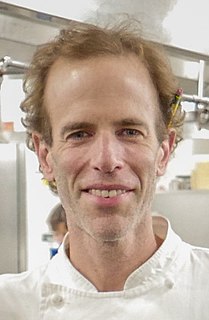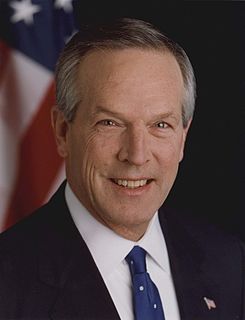A Quote by Kerry Kennedy
Throughout Africa, as in much of the world, women are responsible for tilling the fields, deciding what to plant, nurturing the crops, and harvesting the food. They are the first to be aware of environmental damage that harms agricultural production.
Related Quotes
As to the latter point - that by having a child in America you are somehow starving a child in Bangladesh - remember that agricultural economics is not a zero-sum game. Farmers want to make a living, so as demand increases, so does production. Not only that, but agricultural productivity has increased so rapidly that in some countries the government pays farmers not to plant crops in an effort to keep food prices from dropping.
Eating is an agricultural act. Eating ends the annual drama of the food economy that begins with planting and birth. Most eaters, however, are no longer aware that this is true. They think of food as an agricultural product, perhaps, but they do not think of themselves as participants in agriculture. They think of themselves as 'consumers.'
With the Industrial Revolution, the production of food was delegated to big companies in order for women and men to be in the labour force, to come home, stick something in the oven, and eat. It became a big industry that does not have a love affair with food nor is really concerned about nurturing you or giving you the right nutrition.
Women are only half responsible for children. Men raise children as much as women do. Until men are as nurturing as women are, and until women are as active outside the home as men are, we won't have democratic families, and therefore we won't have democracy, and we will continue this hierarchical notion of life.
And so much of these plant psychedelic entities are at least 4,000 years old. Now, when you experiment - when you work with these plant psychedelics, what I have found is that these entities are actually there. They are aware of you, they are aware that you are a person, and they are able to communicate with you.
Harvesting the biosphere is still the most fundamental human activity. Without that, everybody's dead, really. We could do quite well without microchips, or the business site of 'Atlantic Monthly,' the gated communities, Guccis, and high-growth GDP. But we cannot do without harvesting the crops and cutting down the wood.
Sara Scherr and Jeff McNeely have given us a thoughtful, sensible book about a topic of great importance to the world. There is no food security, no poverty reduction, no environmental sustainability without transforming our agricultural practices. The book ?presents well documented cases of best practices from all over the world. It should be required reading for all concerned with agriculture, the environment, food security or just the future of our children.




































